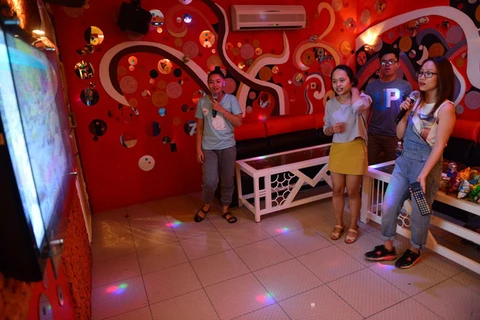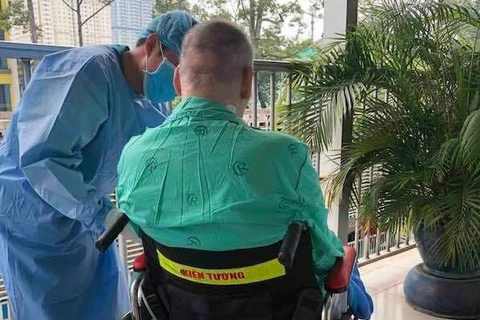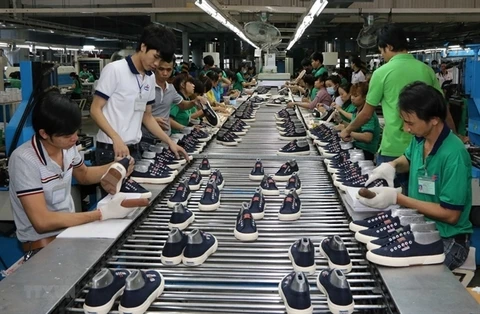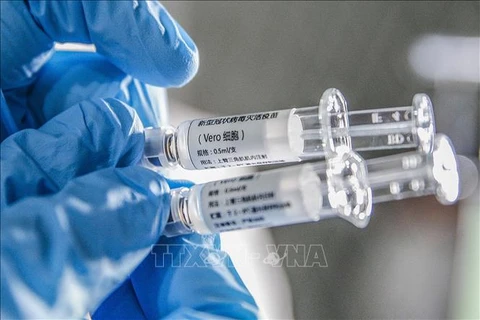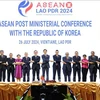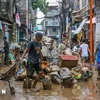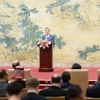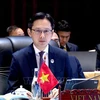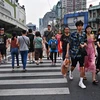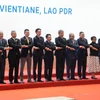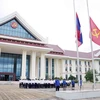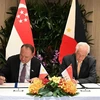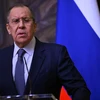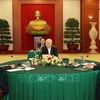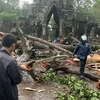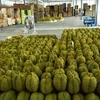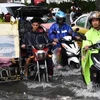 A medic checks temperature of people quarantined at a state-designated facility in Vietnam. (Photo: VNA)
A medic checks temperature of people quarantined at a state-designated facility in Vietnam. (Photo: VNA)Tokyo (VNA) – The quick establishment of a testing system and thorough quarantine measures are the main factors behind Vietnam’s success in containing COVID-19 community infections, a Japanese professor was quoted as saying by the Japanese TV channel NHK in a story published on June 11.
The story was reported by NHK Hanoi Bureau Chief Michishita Wataru, revealing secrets behind Vietnam’s impressive handling of the coronavirus since the early stage.
"Vietnam has no special test kits or drugs to treat the disease,” says Hasebe Futoshi, a professor at Nagasaki University's Institute of Tropical Medicine Vietnam Research Station who has been conducting research on infectious diseases together with an institute in Hanoi for many years.
“But the government decided to do what it had to do at an early stage and put that plan straight into practice."
The country's political system also plays a part, as it enables the authorities to impose restrictions on people with a degree of coercion, Hasebe said, adding that the fact that people mostly complied was another significant factor.
Early and robust action was taken by Vietnam to halt the spread of the virus, NHK reported.
The Vietnamese government said early on that it would put people ahead of the economy and implemented a series of strict preventive measures, it said.
Immediately after the first case was confirmed in the country in late January, authorities introduced quarantine for infected people and anyone they had been in contact with. And from the beginning of April, the government restricted nonessential outings and suspended the operation of stores other than supermarkets and pharmacies.
A survey by major British research firm YouGov shows that more than 90 percent of Vietnamese say the government is well handling the pandemic.
In interviews with NHK and other international media, Prime Minister Nguyen Xuan Phuc said the tough measures implemented by his government are paying off.
"We don't ignore people's lives by thinking only about the economy,” he was quoted as saying. PM Phuc said as this is a very dangerous virus and no vaccine has been developed, strict measures are important.
“Our success in quickly bringing the pandemic under control will help draw investors and tourists back to Vietnam."
As the coronavirus is taking heavy toll on the Vietnamese economy, the leader has vowed to support business operators by reducing taxes and offering other incentives, NHK reported./.
VNA
